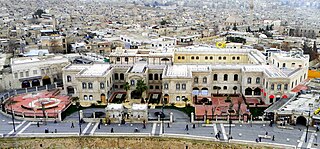 W
WOn 8 May 2014, a bomb blast leveled the Carlton Citadel Hotel in Aleppo, Syria, killing 14–50.
 W
WThe 2005 Amman bombings were a series of coordinated bomb attacks on three hotel lobbies in Amman, Jordan, on 9 November 2005. The explosions at the Grand Hyatt Hotel, the Radisson SAS Hotel, and the Days Inn started at around 20:50 local time at the Grand Hyatt. The three hotels are frequented by foreign diplomats. The bomb at the Radisson SAS exploded in the Philadelphia Ballroom, where a Jordanian wedding hosting hundreds of guests was taking place. The attacks killed 57 people and injured 115 others.
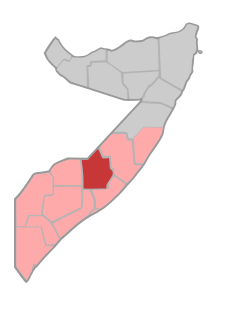 W
WThe 2009 Beledweyne bombing took place on June 18, 2009 in Beledweyne, Hiiraan, Somalia. A suicide bomber carried out the attack, detonating an explosives-laden vehicle at the front gate of the Medina Hotel. The blast killed 35 people, among them the Somali security minister Omar Hashi Aden, former Somali ambassador to Ethiopia and the African Union, Abdikarim Farah, and several Somali diplomats. Jihadist group al-Shabaab claimed responsibility for the attack.
 W
WThe Brighton hotel bombing was a Provisional Irish Republican Army (IRA) assassination attempt against the top tier of the British government that occurred on 12 October 1984 at the Grand Brighton Hotel in Brighton, England. A long-delay time bomb was planted in the hotel by IRA member Patrick Magee, with the purpose of killing Prime Minister Margaret Thatcher and her cabinet, who were staying at the hotel for the Conservative Party conference. Although Thatcher narrowly escaped the blast, five people connected with the Conservative Party were killed, including a sitting Conservative MP, and 31 were injured.
 W
WThe Brinks Hotel in Saigon, also known as the Brink Bachelor Officers Quarters (BOQ), was bombed by the Viet Cong on the evening of December 24, 1964, during the Vietnam War. Two Viet Cong operatives detonated a car bomb underneath the hotel, which housed United States Army officers. The explosion killed two Americans, an officer and an NCO, and injured approximately 60, including military personnel and Vietnamese civilians.
 W
WThe Canal Hotel bombing was a suicide truck bombing in Baghdad, Iraq, in the afternoon of August 19, 2003. It killed 22 people, including the United Nations' Special Representative in Iraq Sérgio Vieira de Mello, and wounded over 100, including human rights lawyer and political activist Dr. Amin Mekki Medani. The blast targeted the United Nations Assistance Mission in Iraq created just five days earlier. The 19 August bombing resulted in the withdrawal within weeks of most of the 600 UN staff members from Iraq. These events were to have a profound and lasting impact on the UN's security practices globally.
 W
WIn the 1988 Cannes and Nice attacks, neo-Nazis posing as Jewish extremists bombed Sonacotra immigrant hostels in 1988, killing one person and hurting sixteen.
 W
WThe 2003 Casablanca bombings were a series of suicide bombings on May 16, 2003, in Casablanca, Morocco. The attacks were the deadliest terrorist attacks in the country's history. Forty-five people were killed in the attacks. The suicide bombers came from the shanty towns of Sidi Moumen, a poor suburb of Casablanca. That same year, Adil Charkaoui, a Casablanca-based resident who was issued a Security Certificate in Montreal, Canada, was charged with supporting terrorism, and rumours allege he may have played a financial role in the bombings.
 W
WOn 20 February 2015, Al-Shabaab militants launched a surprise attack on the Central Hotel in Mogadishu, Somalia, where various Federal Government of Somalia officials had gathered for Friday prayers at the compound's mosque. Between 11 and 25 people were killed, including the suicide bomber, local deputy mayor and two MPs. The Federal Cabinet subsequently announced the formation of a security committee to probe the circumstances surrounding the attack, as well as a ministerial committee to follow up on the situation. Security forces thereafter apprehended a number of suspects, and deployed more police and soldiers onto the city's main roads.
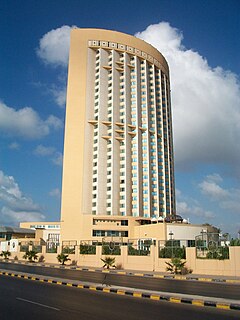 W
WIn January 2015, the Corinthia Hotel in Tripoli was attacked by men affiliated with the Islamic State of Iraq and the Levant (ISIL). The hotel was popular with foreign officials and government workers; it had previously housed the Libyan Prime Minister.
 W
WThe 1997 Cuba hotel bombings were a series of terrorist bombing attacks on Cuban hotels organized by anti-Communist militants. The purpose of the bombing campaign was to destroy the recently resurgent Cuban tourism trade and in so doing, undermine the country's Communist government. The first and worst of the explosions took place at the Hotel Copacabana at about 11:30 AM, and killed Fabio di Celmo, a 32-year-old Genoa, Italy, native and resident of Montreal, according to the Italian Foreign Ministry in Rome. Di Celmo was visiting Cuba with his father and staying in the hotel. 11 other tourists were also injured in the bombings. The hotels targeted included the Hotel Capri, Hotel Nacional de Cuba, and the Meliá Cohiba Hotel. Cuban-exile and former CIA asset, Luis Posada Carriles, admitted organizing the bombings. In a taped interview with The New York Times, Posada said: "It is sad that someone is dead, but we can't stop." Posada was reportedly disappointed with the reluctance of American news organisations to report the bombing attacks, saying "If there is no publicity, the job is useless".
 W
WThe Dayah Hotel attack occurred on 25 January 2017 when a hotel in the Somali capital city Mogadishu was attacked by Al-Shabaab gunmen and car bombs, killing 28 people and injuring 43 others. Taking place shortly after 08:00 on a Wednesday morning, the attack began when a car filled with explosives rammed the gate of the Dayah Hotel, a luxury hotel popular with politicians, and detonated. Immediately after, four armed militants attempted to storm the hotel – however Somali security guards shot the men dead before they reached it. As emergency services and journalists converged on the scene, a second car bomb detonated, causing more casualties.
 W
WThe Harvey's Resort Hotel bombing took place on August 26–27, 1980, when several men masquerading as photocopier deliverers planted an elaborately booby trapped bomb containing 1,000 pounds (450 kg) of dynamite at Harvey's Resort Hotel in Stateline, Nevada, United States. After an attempt to disarm the bomb, it exploded causing extensive damage to the hotel but no injuries or deaths. The total cost of the damage was estimated to be around $18 million. John Birges Sr. was convicted of having made the bomb with a goal of extorting money from the casino after having lost $750,000 there. He died in prison in 1996, at the age of 74.
 W
WThe explosion at Hotel Jørgensen was a minor explosion inside of the discount hostel of the same name in central Copenhagen, Denmark. The explosion happened at 1:23 pm on 10 September 2010. No fatalities were recorded. The only injured person was the one-legged Chechnyan-Belgian bomber Lors Doukaiev, who was caught in a nearby park, Ørstedsparken, following the explosion, but only identified several days later.
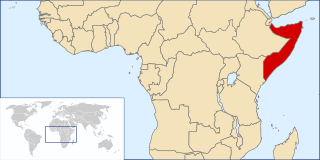 W
WThe 2009 Hotel Shamo bombing was a suicide bombing at the Hotel Shamo in Mogadishu, Somalia, on 3 December 2009. The bombing killed 25 people, including three ministers of the Transitional Federal Government, and injured 60 more, making it the deadliest attack in Somalia since the Beledweyne bombing on 18 June 2009 that claimed more than 30 lives.
 W
WOn 28 June 2011, an attack on the Inter-Continental Hotel, Kabul by gunmen and suicide bombers, and an ensuing five-hour siege, left at least 21 people dead, including all 9 attackers. Responsibility was claimed by the Taliban.
 W
WThe Islamabad Marriott Hotel bombing occurred on the night of 20 September 2008, when a dump truck filled with explosives was detonated in front of the Marriott Hotel in the Pakistani capital Islamabad, killing at least 54 people, injuring at least 266 and leaving a 60 ft wide, 20 ft deep crater outside the hotel. The majority of the casualties were Pakistanis; at least five foreign nationals were also killed and fifteen others reported injured. The attack occurred only hours after President Asif Ali Zardari made his first speech to the Pakistani parliament. The Marriott was the most prestigious hotel in the capital, and was located near government buildings, diplomatic missions, embassies and high commissions.
 W
WThe 2009 Jakarta Bombings were a terrorist attack which took place in Jakarta, Indonesia on 17 July 2009. At around 07:47 until 07:57 WIB, the JW Marriott and Ritz-Carlton Hotels in Setiabudi, South Jakarta, were hit by separate bombings five minutes apart. Nine people were killed, of whom three were Indonesian, three were Australians, two were from The Netherlands, and one was from New Zealand. More than 50 people were injured in the blasts. Both blasts were caused by suicide bombers, who checked into the hotels as paying guests several days earlier. The twin suicide bombings came four years after the previous serious terrorist attack in Indonesia.
 W
WOn July 26, 2015, the Jazeera Palace Hotel in Mogadishu, Somalia was struck by a suicide bomber driving a vehicle packed with explosives. At least 15 people were killed. al-Shabab claimed responsibility for the attack.
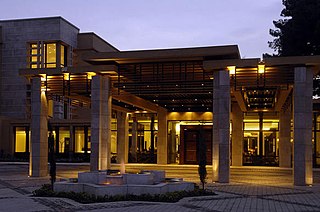 W
WThe 2008 Kabul Serena Hotel attack was an attack on the gym of the Kabul Serena Hotel, in Kabul, Afghanistan on January 14, 2008, for which the Taliban claimed responsibility.
 W
WThe King David Hotel bombing was a terrorist attack carried out on Monday, July 22, 1946, by the militant right-wing Zionist underground organization the Irgun on the British administrative headquarters for Mandatory Palestine, which was housed in the southern wing of the King David Hotel in Jerusalem during the Jewish insurgency in Mandatory Palestine. 91 people of various nationalities were killed, and 46 were injured.
 W
WOn 27 March 2015, Al-Shabaab militants launched an attack on the Makka al-Mukarama hotel in Mogadishu, Somalia. The siege ended a few hours later on 28 March, after a special forces unit of the Somali Armed Forces stormed the premises, recaptured it, and killed all five of the attackers. According to the Ministry of Information, around 20 people died during the standoff, including the perpetrators, security forces, hotel security guards and some civilians, with around 28 wounded. The special forces also rescued more than 50 hotel guests. President of Somalia Hassan Sheikh Mohamud ordered an investigation into the attack, and the Ministry of Information announced that the federal government was slated to pass new laws to curb illicit firearms. On 8 May, the Makka al-Mukarama hotel officially reopened after having undergone renovations.
 W
WOn 23 February 2018, at least 45 people were killed and 36 others injured in two car bombings and a shooting in Mogadishu. Al-Shabaab later claimed responsibility.
 W
WThe 2 January 2017 Mogadishu bombings took place on 2 January 2017, when a pair of suicide car bombings targeted civilians and security forces in Somalia's capital. The first targeted a checkpoint, while a second car drove at high speed through it and detonated outside the Peace Hotel, opposite Aden Adde International Airport. The attack killed at least seven people and injured 17 others. The al-Shabaab militant group claimed responsibility for the attack.
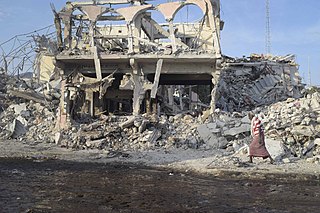 W
WOn 14 October 2017, two truck bombings took place in Mogadishu, the capital of Somalia, killing at least 587 people and injuring 316 others. Almost all of the casualties were caused by one of the trucks, which detonated when the driver, while attempting to escape from security officials, crashed through a barrier and exploded in the Hodan District, destroying a hotel; the intended target of the attack is believed to have been a secure compound housing international agencies and troops. The second blast happened close by, killing two people. A third explosives-laden truck was captured by police.
 W
WThe 2002 Mombasa attacks was a two-pronged terrorist attack on 28 November 2002 in Mombasa, Kenya against an Israeli-owned hotel and a plane belonging to Arkia Airlines. An all-terrain vehicle crashed through a barrier outside the Paradise Hotel and blew up, killing 13 and injuring 80. At the same time, attackers fired two surface-to-air missiles at an Israeli charter plane. The Paradise Hotel was the only Israeli-owned hotel in the Mombasa area. The attacks were believed to be orchestrated by al-Qaeda operatives in Somalia in an attempt to disrupt the Israeli tourist industry on the African continent. Much speculation has occurred as to who the perpetrators are, but no complete list of suspects has been defined. The attack was the second al-Qaeda terrorist operation in Kenya, following the bombing of the U.S. embassy in Nairobi in 1998. Following the attack, the UN Security Council and other nations condemned the bombing.
 W
WThe 2008 Mumbai attacks were a series of terrorist attacks that took place in November 2008, when 10 members of Lashkar-e-Taiba, an Islamist terrorist organisation from Pakistan, carried out 12 coordinated shooting and bombing attacks lasting four days across Mumbai. The attacks, which drew widespread global condemnation, began on Wednesday 26 November and lasted until Saturday 29 November 2008. At least 174 people died, including 9 attackers, and more than 300 were wounded.
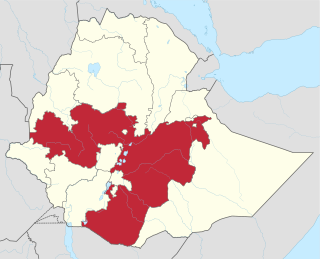 W
WThe 2008 Ethiopia Negele Boran bombings were two bombings on the night of 28 May 2008 at two hotels in the town of Negele Boran in the Oromia Region of Ethiopia which killed 3 and injured 5. The two bombs were detonated 3 minutes apart: the first exploded in the Kidane Mihret Hotel and the second in the Shuferoch hotel, just a few yards away.
 W
WOn 2 June 2017, dozens of people at the Resorts World Manila entertainment complex in Pasay, Metro Manila, Philippines were killed or injured when a gunman caused a stampede and set fire to casino tables and slot machine chairs around midnight. The gunman moved to a storage area to steal casino chips from the venue, but later committed suicide following a confrontation with the responding police. All of the attack's deaths and injuries resulted from the initial stampede and smoke inhalation from the fire.
 W
WThe Savoy Hotel attack was a terrorist attack by members of the Palestine Liberation Organization against the Savoy Hotel in Tel Aviv, Israel, on 4–5 March 1975.
 W
WThe Semiramis Hotel bombing was a terrorist attack carried out by a Jewish paramilitary group, the Haganah on the Christian owned Semiramis Hotel in the Katamon neighborhood of Jerusalem during the 1947–1948 Civil War in Mandatory Palestine.
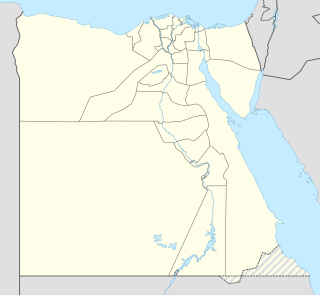 W
WThe Arish hotel bombing was a terrorist attack on a hotel in the coastal city of Al-Arish, Egypt, on 24 November 2015. A group of militants approached the heavily guarded hotel with a car bomb, but Egyptian security forces opened fire at the vehicle, blowing it up before it could reach the building. One of the two attackers managed to get inside the hotel, where a number of people were injured and killed as a result of gunfire and a subsequent suicide bombing. Authorities reported at least seven dead, including two judges who had been in Al-Arish to supervise the country's second round of parliamentary elections, held the day before. The Islamic State's Wilayat Sinai offshoot claimed responsibility in a statement released later the same day.
 W
WThe 2004 Sinai bombings were three bomb attacks targeting tourist hotels in the Sinai Peninsula, Egypt, on 7 October 2004. The attacks left 34 people dead and 171 injured.
 W
WOn 21 April 2019, Easter Sunday, three churches in Sri Lanka and three luxury hotels in the commercial capital, Colombo, were targeted in a series of coordinated Islamist terrorist suicide bombings. Later that day, there were smaller explosions at a housing complex in Dematagoda and a guest house in Dehiwala. A total of 267 people were killed, including at least 45 foreign nationals, three police officers, and eight bombers, and at least 500 were injured. The church bombings were carried out during Easter services in Negombo, Batticaloa and Colombo; the hotels that were bombed were the Shangri-La, Cinnamon Grand, Kingsbury and Tropical Inn. According to the State Intelligence Service, a second wave of attacks was planned, but was stopped as a result of government raids.
 W
WThe Sydney Hilton Hotel bombing occurred on 13 February 1978, when a bomb exploded outside the Hilton Hotel in Sydney, New South Wales, Australia. At the time the hotel was the site of the first Commonwealth Heads of Government Regional Meeting (CHOGRM), a regional offshoot of the biennial meetings of the heads of government from across the Commonwealth of Nations.